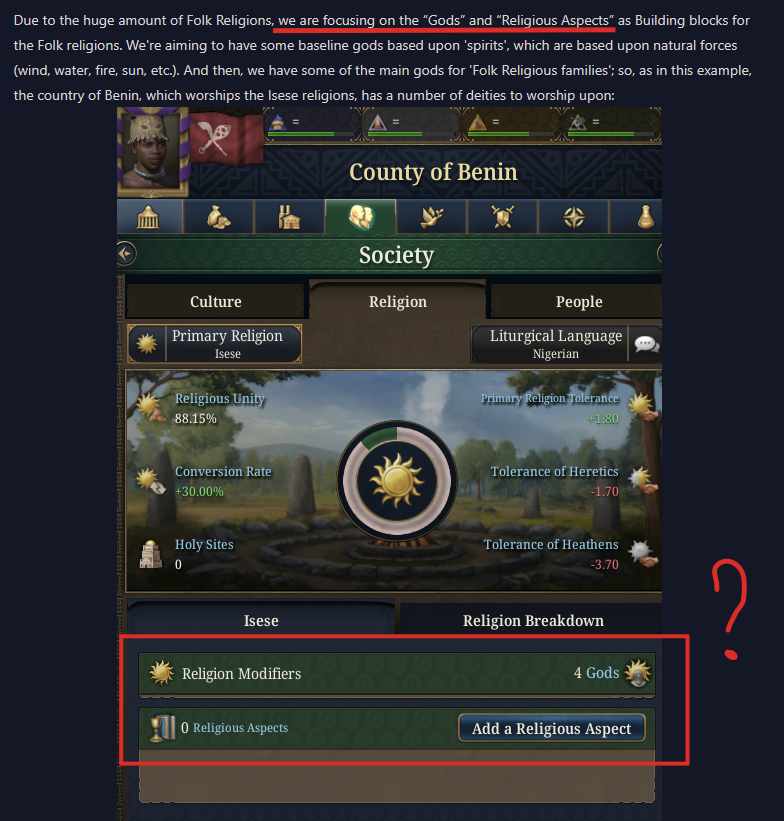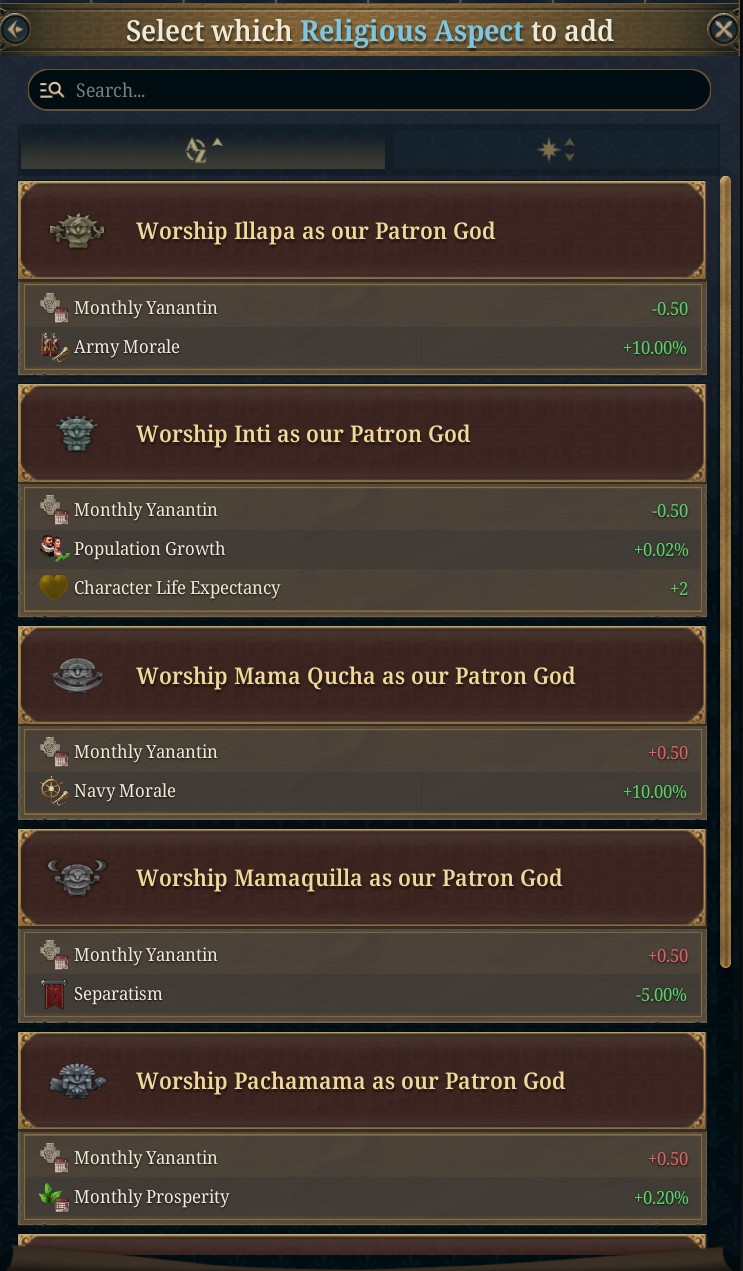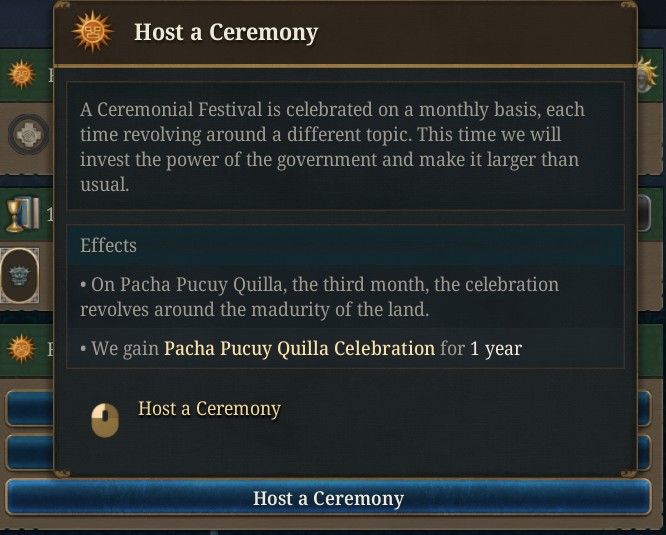Hello, and welcome to another Tinto Talks, the happy Wednesdays where we talk about Europa Universalis V!
Today, we will talk about the Inti & Folk Religions! Let’s start without further ado.
Inti is quite a unique religion that stands out in the Peruvian region:
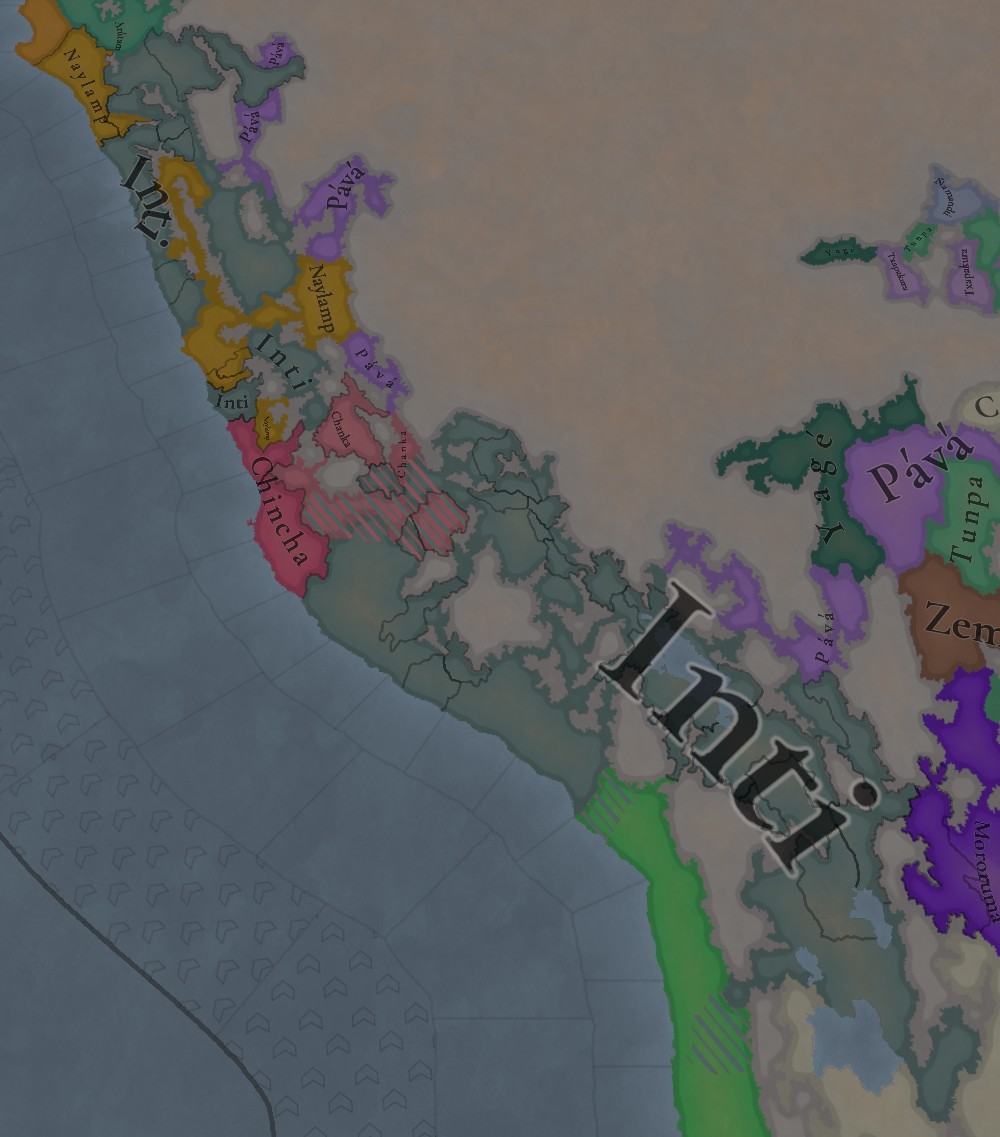
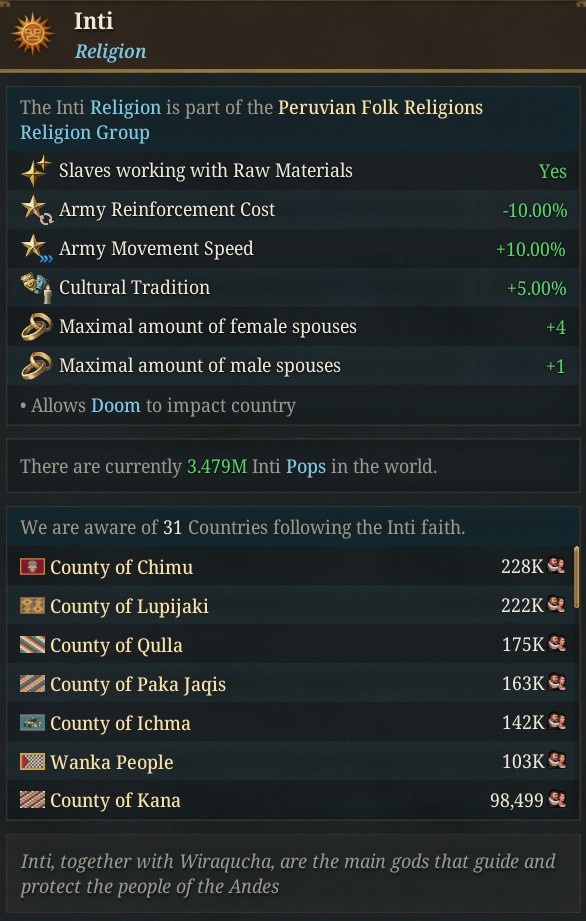
As you see, Inti is part of the Peruvian Folk Religions group. We’ll explain how that works further down.
Here is the panel of the religion, which may be familiar to you at this point:
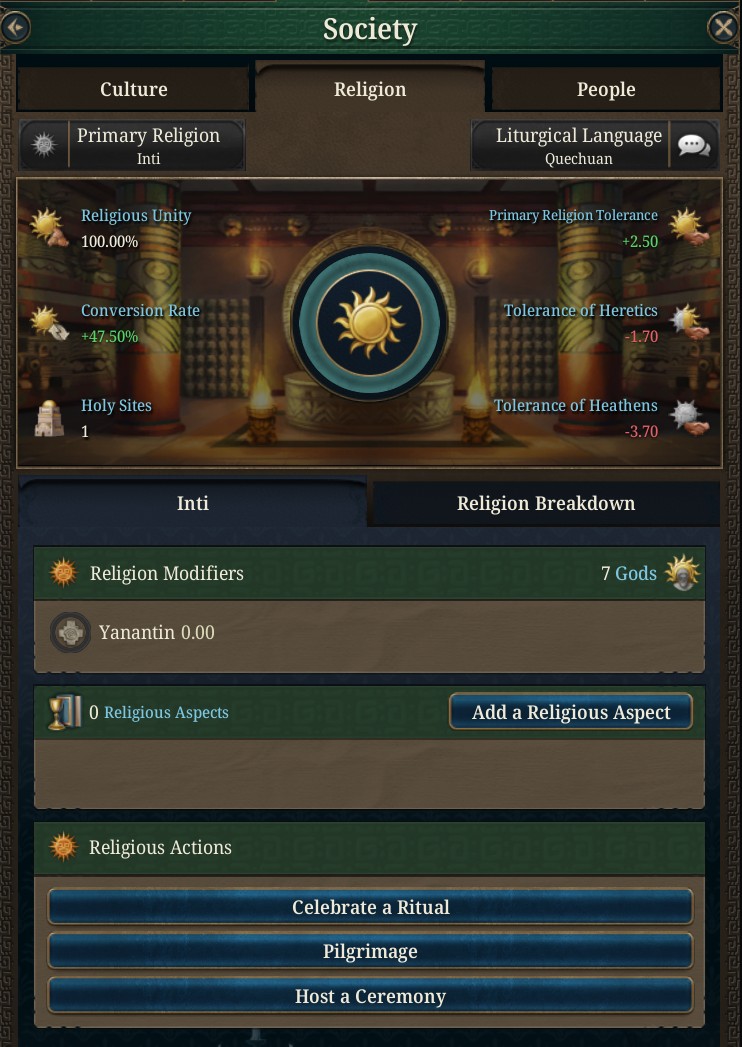
The most important mechanic of the Inti religion is the Yanantin, which is a value that can go from -100 to +100. You’ll mostly get penalties if you’re above or below 0, but it gives the most modifiers when it’s exactly and perfectly balanced at 0:
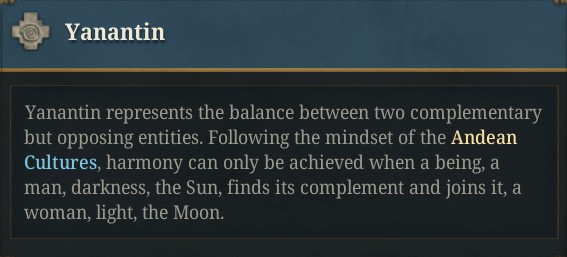
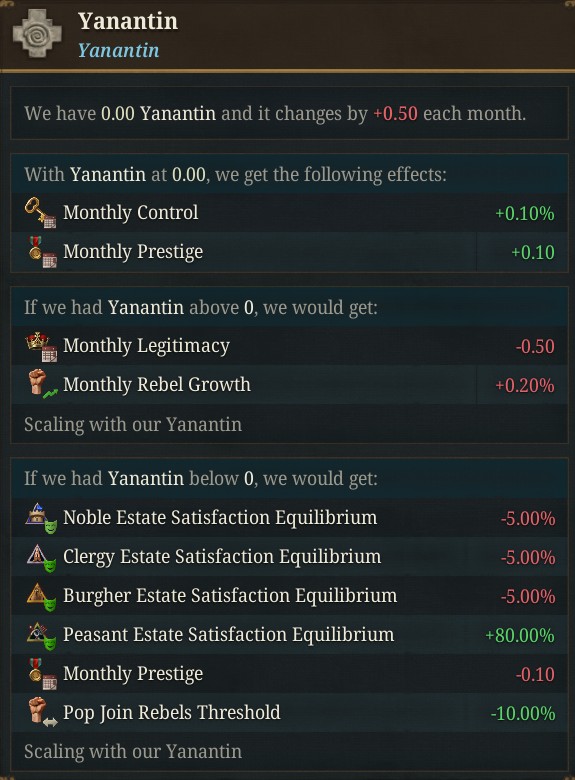
Depending on the gods that you worship, from seven available, you’ll get positive or negative Yanantin:
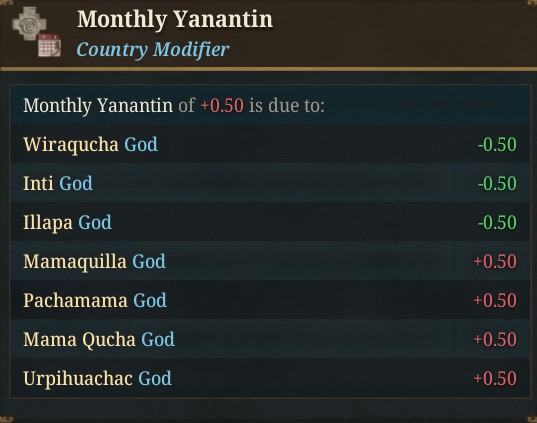
As you see, the base value is +0.50.
Apart from that, the worship of each of these gods gives passive modifiers to the country:
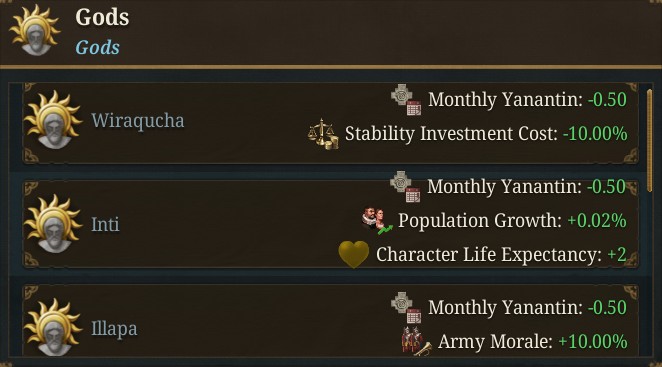
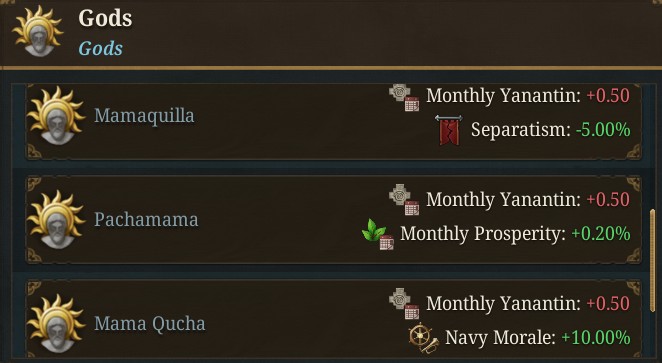
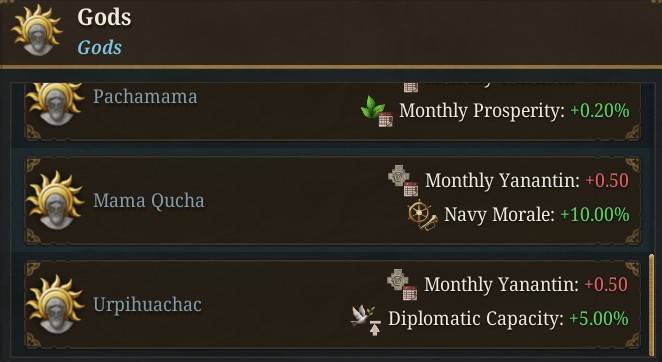
Here we’re using one of those ‘Building Blocks’ that we’ve talked about before, the Religious Aspect, in a way that promotes the worship of a certain god, which has the consequence of increasing their effects - therefore, being one of the ways of balancing the Yanantin of the country:
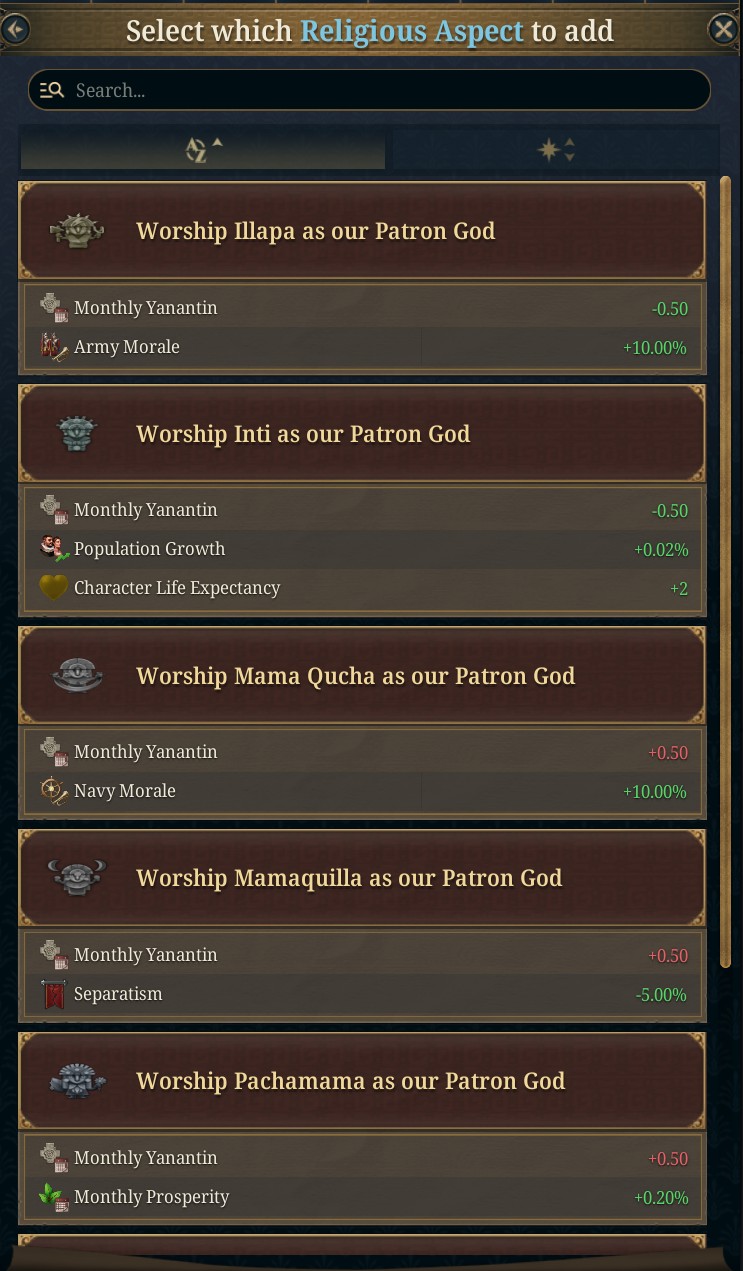
You can only promote the worship of one god at a time, and changing it costs Stability:
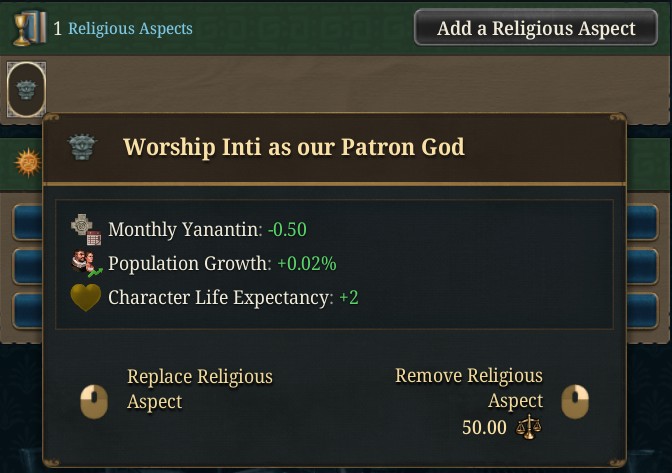
As usual, take the numbers as a matter of balance and WIP.
Another way of balancing the Yanantin of your country is by performing any of the available actions:

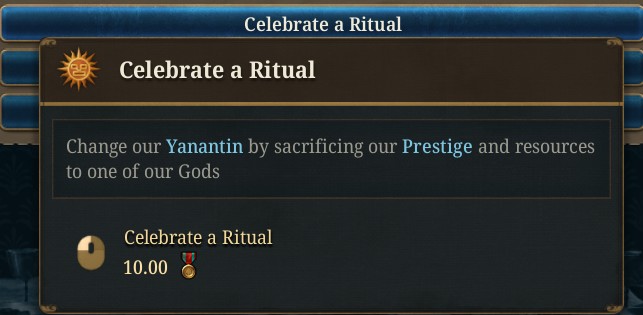
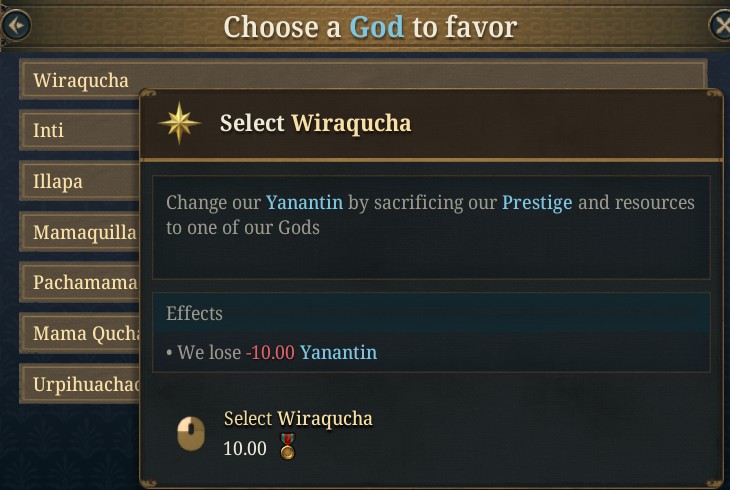
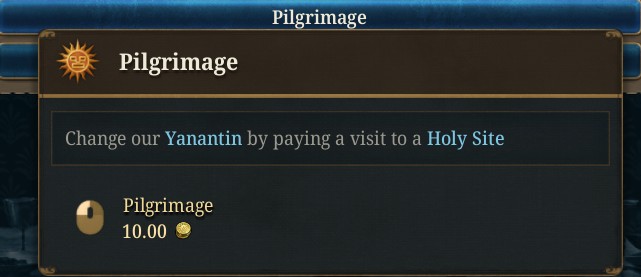
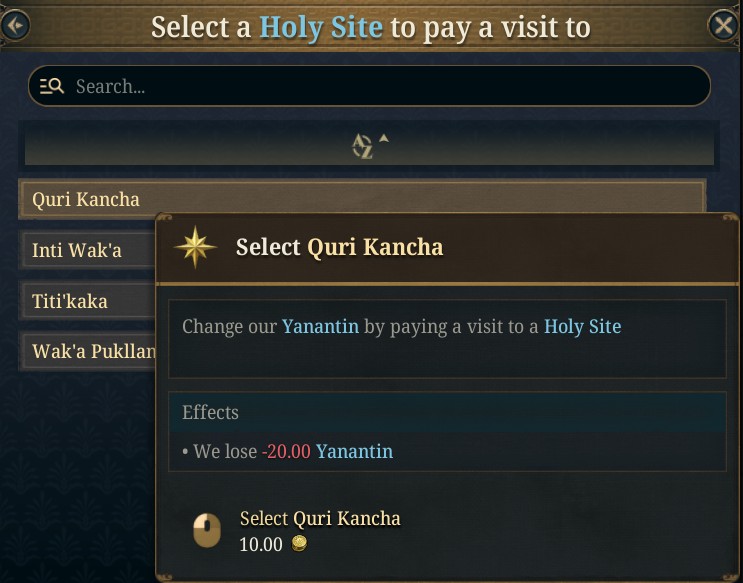
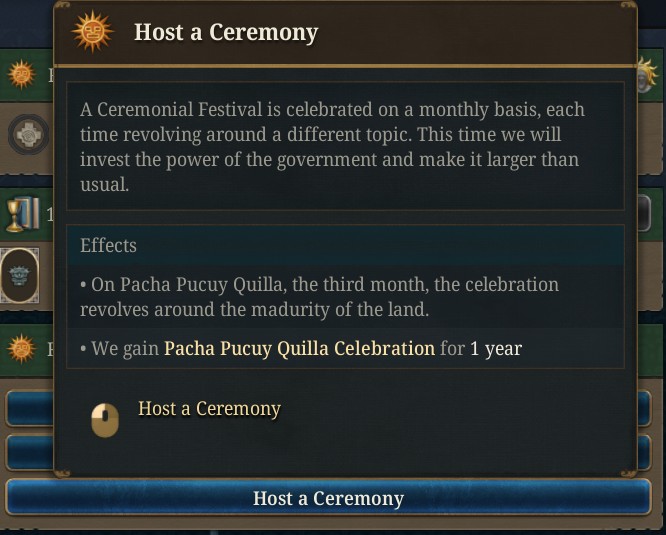

Note: There are 13 different festivities, with different modifiers; which one you get when you Host a Ceremony depends on the time of the year.
Very large sections of the world are covered by Folk Religions, the new denomination of what formerly in EU4 were Animist, Pagan, or Totemist religions, and that we’ve been able to set up thanks to your feedback in the Tinto Maps series:
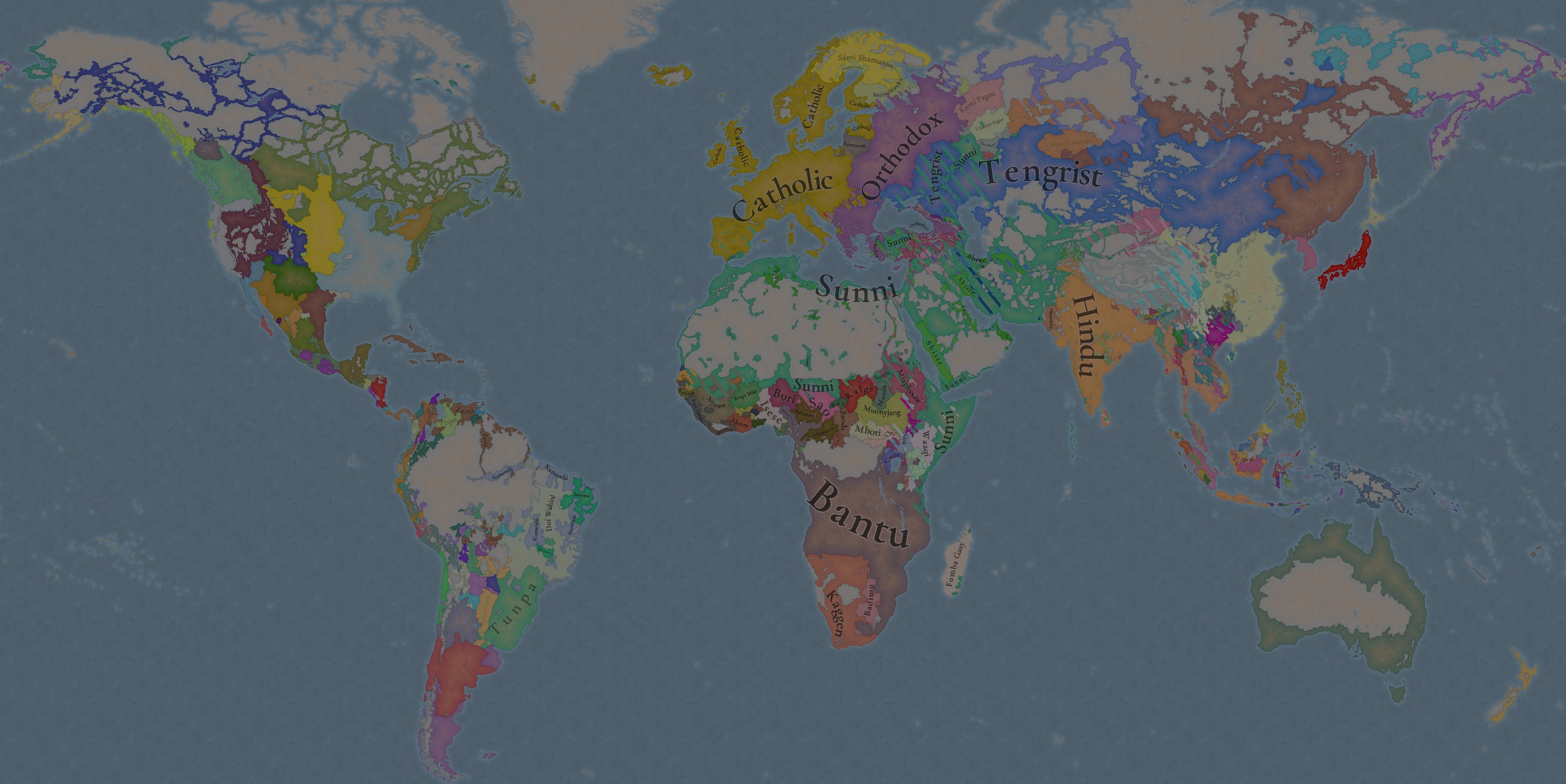
Due to the huge amount of Folk Religions, we are focusing on the “Gods” and “Religious Aspects” as Building blocks for the Folk religions. We're aiming to have some baseline gods based upon 'spirits', which are based upon natural forces (wind, water, fire, sun, etc.). And then, we have some of the main gods for 'Folk Religious families'; so, as in this example, the country of Benin, which worships the Isese religions, has a number of deities to worship upon:
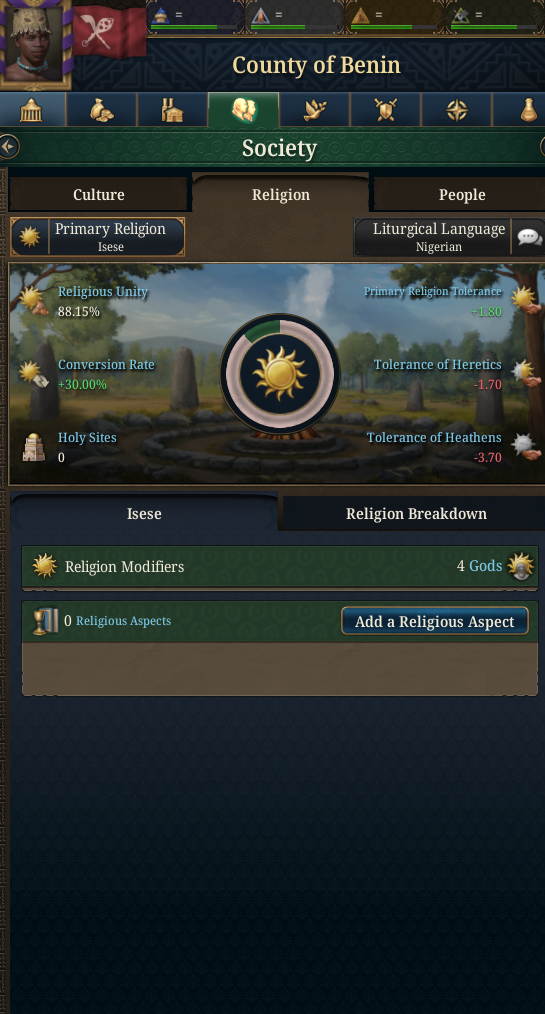
The Isese Religion as an example
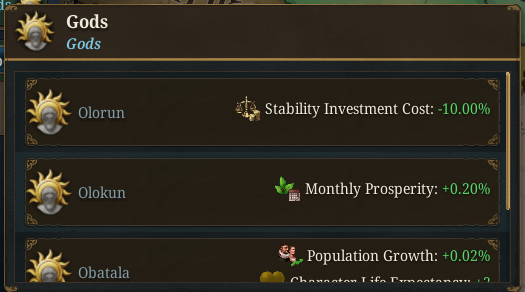
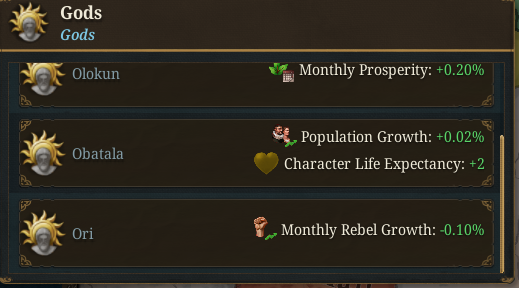
The Gods that are available to the people of Benin
And that’s all for today! We will come back on Friday, as we will talk in the Tinto Flavour about the Inca!
And also remember, you can wishlist Europa Universalis V now! Cheers!
Today, we will talk about the Inti & Folk Religions! Let’s start without further ado.
Inti
Inti is quite a unique religion that stands out in the Peruvian region:


As you see, Inti is part of the Peruvian Folk Religions group. We’ll explain how that works further down.
Here is the panel of the religion, which may be familiar to you at this point:

The most important mechanic of the Inti religion is the Yanantin, which is a value that can go from -100 to +100. You’ll mostly get penalties if you’re above or below 0, but it gives the most modifiers when it’s exactly and perfectly balanced at 0:


Depending on the gods that you worship, from seven available, you’ll get positive or negative Yanantin:

As you see, the base value is +0.50.
Apart from that, the worship of each of these gods gives passive modifiers to the country:



Here we’re using one of those ‘Building Blocks’ that we’ve talked about before, the Religious Aspect, in a way that promotes the worship of a certain god, which has the consequence of increasing their effects - therefore, being one of the ways of balancing the Yanantin of the country:

You can only promote the worship of one god at a time, and changing it costs Stability:

As usual, take the numbers as a matter of balance and WIP.
Another way of balancing the Yanantin of your country is by performing any of the available actions:







Note: There are 13 different festivities, with different modifiers; which one you get when you Host a Ceremony depends on the time of the year.
Folk Religions
Very large sections of the world are covered by Folk Religions, the new denomination of what formerly in EU4 were Animist, Pagan, or Totemist religions, and that we’ve been able to set up thanks to your feedback in the Tinto Maps series:

Due to the huge amount of Folk Religions, we are focusing on the “Gods” and “Religious Aspects” as Building blocks for the Folk religions. We're aiming to have some baseline gods based upon 'spirits', which are based upon natural forces (wind, water, fire, sun, etc.). And then, we have some of the main gods for 'Folk Religious families'; so, as in this example, the country of Benin, which worships the Isese religions, has a number of deities to worship upon:

The Isese Religion as an example


The Gods that are available to the people of Benin
And also remember, you can wishlist Europa Universalis V now! Cheers!



